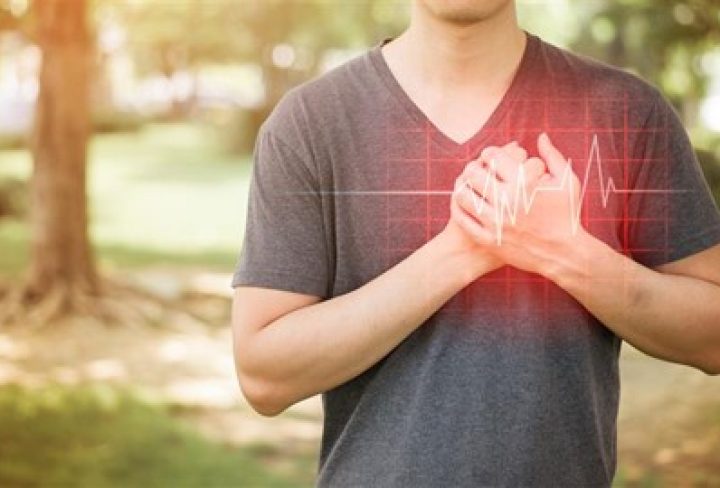What is Cardiomyopathy?
- Cardiomyopathy is a collection of various conditions that affect the heart muscle (myocardium).
- Cardiomyopathy makes the normal muscle in the heart thicken, stiffen, thin out, or fill with other substances causing scar tissue.
- Cardiomyopathy reduces the heart muscle’s ability to pump blood that eventually lead to heart failure.
Types of Cardiomyopathy:
- Dilated cardiomyopathy (heart’s blood-pumping chambers enlarge (dilate))
- Hypertrophic cardiomyopathy (heart muscle thickens)
- Arrhythmogenic right ventricular dysplasia (ARVD) (a disease in your heart muscle that causes irregular heart rhythms)
- Restrictive cardiomyopathy (heart muscle scars, stiffens, or both)
- Transthyretin amyloid cardiomyopathy (ATTR-CM) (Abnormal protein buildup in the heart’s left ventricle (primary blood-pumping chamber))
Other types of cardiomyopathies include:
- Broken heart syndrome (stress-induced or takotsubo cardiomyopathy)
- Chemotherapy (cancer treatment)-induced cardiomyopathy
- Peripartum (pregnancy-related) cardiomyopathy
What are the symptoms of cardiomyopathy?
- Fatigue
- palpitations (rapid heartbeat)
- Shortness of breath
- Swelling (edema) in the legs, calves or ankles
- Fainting
Some people have no symptoms. As the disease progresses, others may experience the above symptoms
Causes of Cardiomyopathy
- Family history of any heart condition (heart attack, coronary artery disease etc)
- Autoimmune diseases
- Diseases that can damage the heart (hemochromatosis, sarcoidosis or amyloidosis)
- Endocrine diseases (thyroid conditions, diabetes)
- Infections in the heart muscle
- Long-term alcoholism
- Muscle conditions such as muscular dystrophy
- Pregnancy
Risk factors Of Cardiomyopathy
- Family history of heart diseases
- Long-term illnesses (High blood pressure, diabetes, etc.)
- Other heart conditions (cardiovascular diseases, heart attack, etc.)
- Long-term alcohol use
- Cancer treatment
- Pregnancy
How is cardiomyopathy diagnosed?
- Chest X-ray
- Echocardiogram
- Electrocardiogram (ECG)
- Treadmill stress test
- Cardiac catheterization
- Cardiac MRI
- Cardiac CT scan
- Blood tests
- Genetic testing or screening
How Is Cardiomyopathy Treated?
- Medications: Heart medications are prescribed that can improve blood flow and control symptoms or treat underlying conditions.
- Devices To Correct Arrhythmias: Devices such as pacemakers or defibrillators (ICDs) are used to treat irregular heart rhythms.
- Devices To Improve Blood Flow: Devices that can help the heart pump blood more efficiently are used
- Surgery: In severe conditions heart surgery is recommended
How Can I Reduce My Risk Of Cardiomyopathy?
- Control high blood pressure
- Maintain cholesterol and blood sugar levels within healthy ranges
- Manage underlying conditions like sleep apnea
- Schedule regular checkups
- Take all medications as prescribed
Preventive steps help reduce your risk of conditions that could lead to cardiomyopathy
Frequently Asked Questions On Cardiomyopathy
Can Cardiomyopathy be cured?
No! Cardiomyopathy cannot be cured. It can be controlled by medication. In some cases, addressing the underlying cause can cure the condition.
Can children get cardiomyopathy?
Yes! The condition can affect people of any age.
Cardiomyopathy can lead to progressive heart dysfunction and complications if left untreated. Seeking early medical intervention is crucial for optimal management and improved outcomes.

